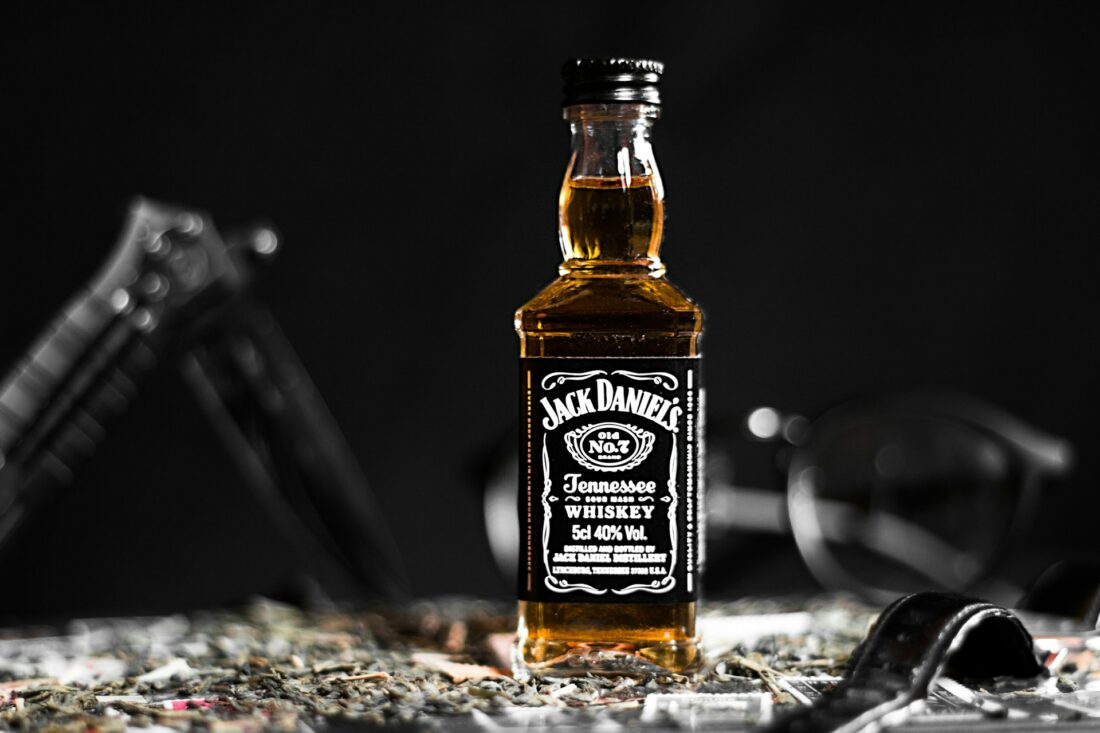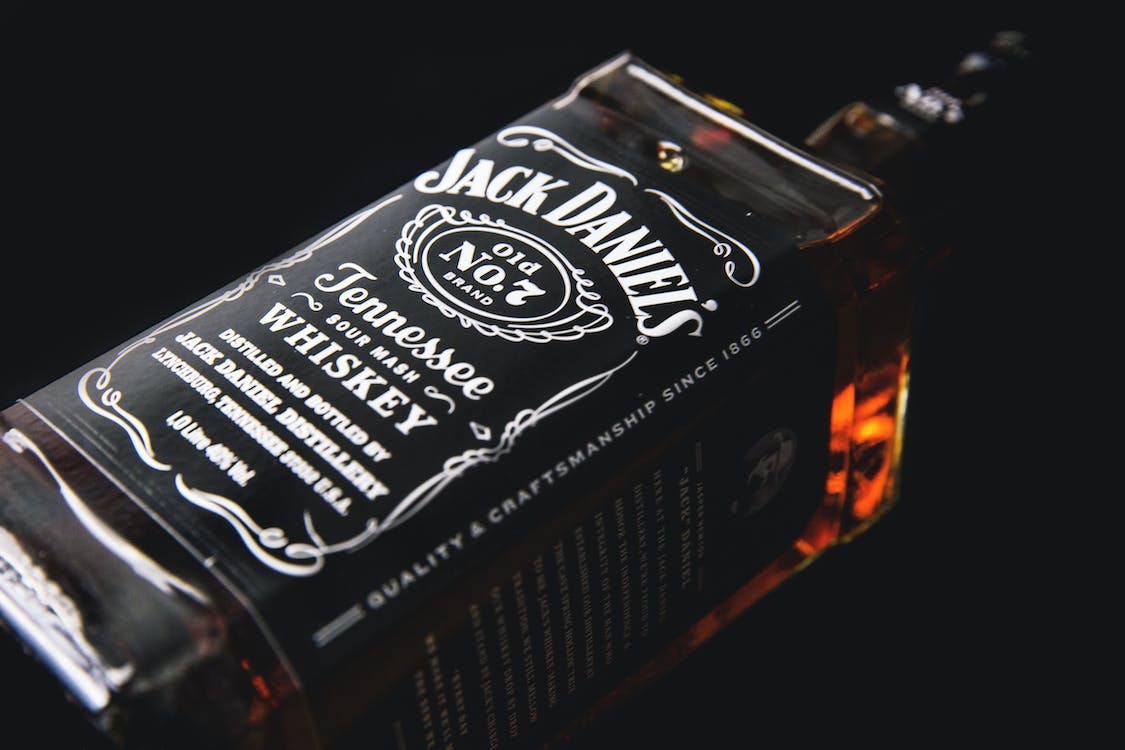
Whiskey is a popular alcoholic beverage that has been enjoyed for centuries. It is made by distilling fermented grains and is known for its distinct flavor and aroma. In addition to its taste, whiskey is also believed to have some health benefits, including its ability to kill bacteria in the throat.
Some people believe that drinking whiskey can help kill the bacteria in the throat, which can cause sore throats, colds, and other infections. This belief is based on the fact that whiskey contains alcohol, which is known for its antibacterial properties. Alcohol has been used for centuries as a disinfectant and is still used in many medical settings today. However, the question remains: Does whiskey really kill bacteria in the throat?
Table of Contents
Understanding Whiskey
One of the primary components of whiskey is alcohol, which has been shown to have antibacterial properties. This means that whiskey can help to kill or inhibit the growth of some bacteria. However, it is important to note that whiskey’s antibacterial properties are limited and may not be effective against all types of bacteria.
In addition to alcohol, whiskey also contains other compounds that may have health benefits. For example, ellagic acid is an organic compound found in whiskey that has been shown to help fight viral and bacterial infections that can cause sore throats or colds. It is an antioxidant that neutralizes harmful radicals, decreases levels of inflammation, and removes toxins in the body, protecting us from different diseases.
Despite these potential health benefits, it is important to remember that drinking whiskey or other alcoholic beverages in excess can have negative effects on your health. Heavy drinking can lead to liver damage, high blood pressure, and other health problems. Therefore, it is recommended to consume alcohol in moderation and as part of a balanced lifestyle.
 photo credit: www.pexels.com
photo credit: www.pexels.com
Alcohol’s Antimicrobial Properties
Alcohol is known for its antimicrobial properties, which means it has the ability to kill or inhibit the growth of microorganisms such as bacteria, viruses, and fungi. This is due to the fact that alcohol can disrupt the cellular membranes of these microorganisms and denature proteins, leading to their destruction.
The concentration of alcohol is an important factor in determining its antimicrobial effectiveness. According to a study published in the Journal of Hospital Infection, a concentration of at least 60% alcohol is needed to effectively kill bacteria and viruses. However, it is important to note that not all types of bacteria are equally susceptible to the effects of alcohol.
Whiskey, like other alcoholic beverages, contains alcohol and therefore has some antimicrobial properties. However, the alcohol concentration in whiskey is typically not high enough to effectively eliminate all types of bacteria in the throat. Whiskey has limited antibacterial properties and its effectiveness in killing bacteria depends on the specific type of bacteria and the concentration of alcohol in the whiskey.
Bacteria and Throat Infections
One common area of infection is the throat, which can be caused by a range of bacteria, including Streptococcus pyogenes (the bacteria that causes strep throat), Haemophilus influenzae, and Neisseria gonorrhoeae (the bacteria that causes gonorrhea).
Throat infections can cause a range of symptoms, including a sore throat, difficulty swallowing, fever, and swollen lymph nodes. While many throat infections are caused by viruses, bacterial infections require treatment with antibiotics.
Drinking whiskey has been suggested as a possible way to kill bacteria in the throat and alleviate the symptoms of a sore throat. However, the evidence for this claim is limited.
While whiskey does have antibacterial properties due to its alcohol content, which can help kill or inhibit the growth of some bacteria, it’s important to note that whiskey is not a substitute for proper medical treatment or hygiene practices when it comes to treating bacterial infections in the throat.
In fact, drinking whiskey or other alcoholic beverages can permanently damage the tissues of the mouth, throat, voice box, and/or food pipe over time. This damage sometimes progresses to cancer, and moderate to heavy drinking increases the risk for all of these cancers, with the highest risk among those who drink the most.
Therefore, it is not recommended to rely on whiskey as a treatment for throat infections. Instead, individuals who are experiencing symptoms of a throat infection should seek medical attention and follow their doctor’s recommended treatment plan.
Whiskey and Throat Bacteria
Alcohol is known to have some antibacterial properties that can disrupt the cellular membranes of bacteria and denature proteins, leading to their destruction. However, the alcohol concentration in whiskey is typically not high enough to effectively eliminate all types of bacteria in the throat.
According to WebMD, whiskey contains ellagic acid, which is an organic compound that helps fight viral and bacterial infections that can cause sore throats or colds. It is an antioxidant that neutralizes harmful radicals, decreases levels of inflammation, and removes toxins in the body, protecting us from different diseases.
While whiskey may have some limited antibacterial properties, it is important to note that it is not a substitute for proper medical treatment. In cases of severe bacterial infections, antibiotics prescribed by a doctor are necessary to effectively eliminate the bacteria.
Scientific Studies on Alcohol and Bacteria
Several scientific studies have been conducted to examine the effects of alcohol on bacteria. A study published in 2017 explored the myth that whiskey can kill bacteria in the throat. The study found that whiskey does have some antibacterial properties due to its alcohol content. Alcohol can disrupt the cellular membranes of bacteria and denature proteins, leading to their destruction. However, the alcohol concentration in whiskey is typically not high enough to effectively eliminate all types of bacteria in the throat.
It is important to note that while alcohol can have some antibacterial properties, it is not a substitute for proper hygiene and medical treatment. In fact, some medications, such as metronidazole, should not be taken with alcohol as it can cause unpleasant reactions such as flushing, headaches, nausea, vomiting, sweating, and increased thirst.
Potential Risks
While whiskey may have some antibacterial properties, it’s important to understand its limitations and potential risks. Drinking whiskey or other alcoholic beverages can permanently damage the tissues of the mouth, throat, voice box, and/or food pipe over time, which can sometimes progress to cancer. Moderate to heavy drinking increases the risk of all of these cancers, with the highest risk among those who drink the most.
According to Livestrong, drinking whiskey or other alcoholic beverages can lead to chronic inflammation and irritation of the throat, which can cause a variety of symptoms such as sore throat, hoarseness, and difficulty swallowing. Chronic use of alcohol can also lead to an overgrowth of bacteria in the small bowel.
In addition, drinking whiskey or other alcoholic beverages can lead to dehydration, which can further irritate the throat and make it more susceptible to bacterial infections. It’s important to drink plenty of water and other non-alcoholic beverages to stay hydrated and reduce the risk of dehydration.
Frequently Asked Questions
Can tequila kill bacteria in the stomach?
Tequila, like other alcoholic beverages, has antibacterial properties due to its alcohol content. However, it is not a cure for bacterial infections in the stomach. It is important to consult a healthcare professional for proper treatment of bacterial infections.
Does wine kill bacteria in the stomach?
Wine, like other alcoholic beverages, has antibacterial properties due to its alcohol content. However, it is not a cure for bacterial infections in the stomach. It is important to consult a healthcare professional for proper treatment of bacterial infections.
Does alcohol kill strep on surfaces?
Alcohol can kill bacteria, including strep, on surfaces. However, it is important to note that alcohol must be used properly and in the correct concentration to effectively kill bacteria. It is also important to clean surfaces thoroughly before applying alcohol.
Does beer kill germs?
Beer, like other alcoholic beverages, has antibacterial properties due to its alcohol content. However, it is not a cure for bacterial infections. It is important to consult a healthcare professional for proper treatment of bacterial infections.
Will rubbing alcohol kill strep on a toothbrush?
Rubbing alcohol can kill bacteria, including strep, on a toothbrush. However, it is important to rinse the toothbrush thoroughly with water after using rubbing alcohol to avoid ingesting the alcohol. It is also important to replace toothbrushes regularly to avoid the buildup of bacteria.
Conclusion
While whiskey does have some antibacterial properties due to its alcohol content, it should not be relied upon as a primary method for killing bacteria in the throat. The limited antibacterial properties of whiskey may help to kill or inhibit the growth of some bacteria, but it is not a guaranteed solution for all types of bacteria.
It is important to maintain good oral hygiene practices, such as brushing and flossing regularly, and seek medical attention if experiencing persistent throat issues.
Related Posts
Here are some related posts that might interest you. These posts provide interesting insights and information related to whisky and the whisky industry:
- 7 Questions For Wolfburn Distillery’s Master Distiller: In this interview, the Master Distiller of Wolfburn Distillery answers some interesting questions about their distillery and their whiskies.
- How is whisky doing as a Travel Retail libation?: This post discusses the state of whisky in the travel retail industry.
- Discussing independent bottling with Lady Of The Glen founder: In this post, the founder of Lady Of The Glen talks about their independent bottling adventure.
- Inside The World’s Largest Scotch Whisky Collection: This post takes you on a tour of the world’s largest Scotch whisky collection.
- Did you know you could own a Scotch Whisky diploma?: This post talks about the Edinburgh Whisky Academy and the Scotch Whisky diploma they offer.



